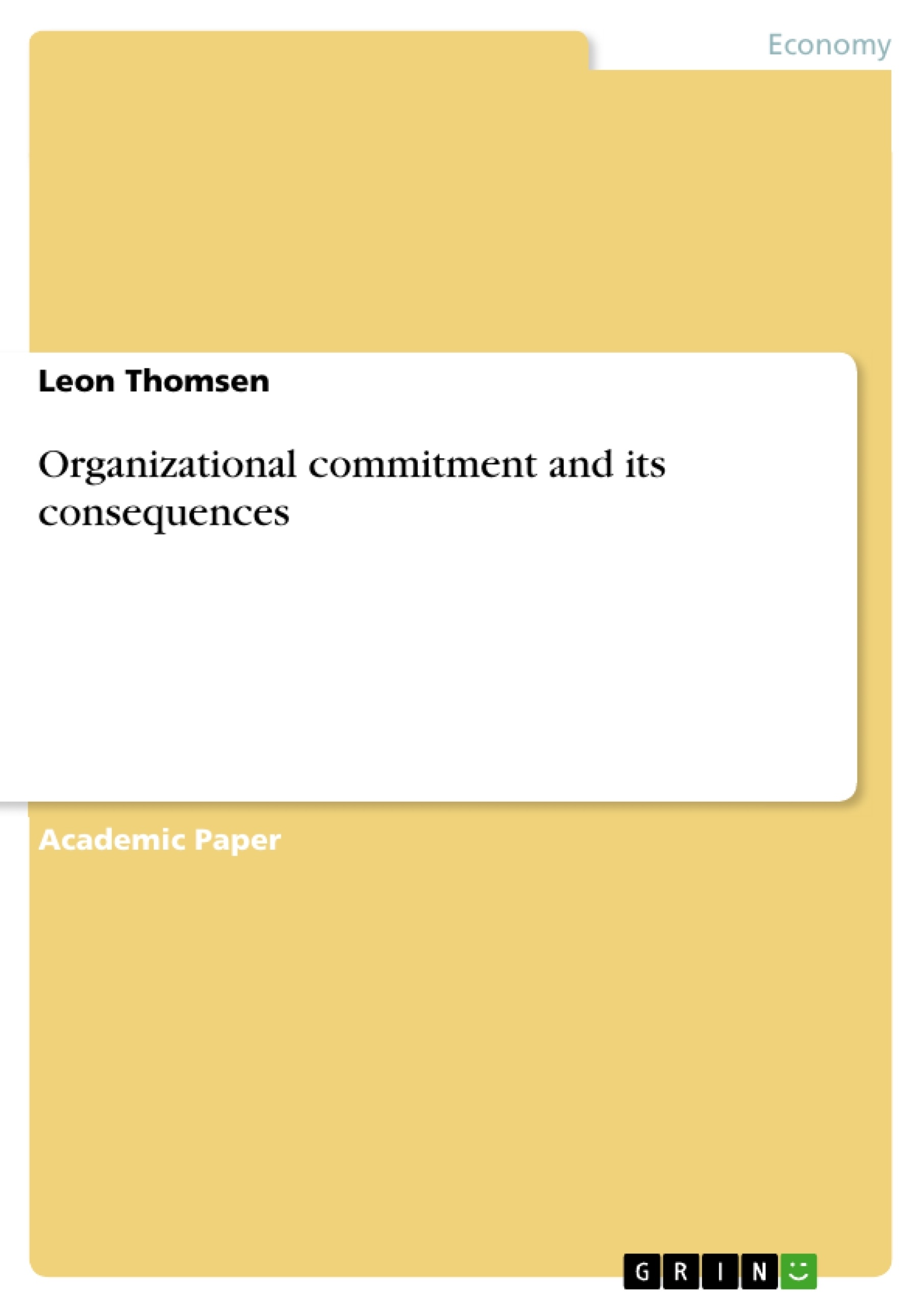Considering the demographic change, the organizational change, which among others is characterized by globalization as well as more flexible forms of employment, and the increasing importance of high professional qualifications, the preservation of employees, especially of executives and young talents, has become of enhanced relevance for organizations. In coherence with the preservation of employees, organizational commitment is highlighted in scientific research as the extent of identification of an employee with an organization and its consequences on his motivation and loyalty towards that organization.
Table of Contents
- Introduction
- Problem Definition and Objective
- Course of Investigation
- Derivation and Definition of Organizational Commitment
- Main Concepts of Organizational Commitment
- One-Dimensional Model
- Three-Component Model by Meyer & Allen
- Affective Commitment
- Continuance Commitment
- Normative Commitment
- Organizational Commitment and Employee Behavior
- Consequences of Organizational Commitment for Employee Behavior
- Organizational Commitment and Business Success
- Consequences of Organizational Commitment for Business Success
- Cost Saving through Reduced Fluctuation
- Long-Term Talent and Knowledge Management
- Assisting the Brand
- Assisting the Business Culture and Job Satisfaction
- Limitations
- Summary and Conclusion
Objectives and Key Themes
This paper aims to analyze the impact of organizational commitment on employee behavior and business success. It explores whether and how organizational commitment can contribute to long-term corporate success.
- Definition and development of organizational commitment
- Different models of organizational commitment, particularly the Three-Component Model (TCM)
- Impact of organizational commitment on employee behavior, including motivation, loyalty, and performance
- Linkage between organizational commitment and business success, including cost savings, talent retention, brand enhancement, and organizational culture
- Limitations of the concept of organizational commitment
Chapter Summaries
The first chapter introduces the topic of organizational commitment and its relevance in the context of demographic and organizational changes. It outlines the paper's objective, which is to explore the potential consequences of organizational commitment for employee behavior and corporate success.
Chapter two delves into the historical development and definition of organizational commitment, tracing its origins in social psychology and sociology to its application in organizational psychology. The chapter introduces key concepts and definitions of commitment, highlighting its significance as a factor influencing employee retention.
Chapter three focuses on different models of organizational commitment, specifically discussing the one-dimensional model and the widely accepted Three-Component Model (TCM) by Meyer & Allen. The chapter elaborates on the three components of the TCM: affective, continuance, and normative commitment, and how these components contribute to understanding the multifaceted nature of organizational commitment.
Chapter four examines the connection between organizational commitment and employee behavior. It explores the various consequences of organizational commitment for employee behavior, including motivation, loyalty, and performance, drawing upon existing research and empirical findings.
Chapter five investigates the link between organizational commitment and business success. This chapter analyzes the various ways in which organizational commitment can contribute to long-term corporate success, including cost savings through reduced employee turnover, long-term talent management, brand building, and fostering a positive organizational culture.
Keywords
Organizational commitment, employee behavior, business success, three-component model (TCM), affective commitment, continuance commitment, normative commitment, cost saving, talent management, brand building, organizational culture, sustainability, economic uncertainty, demographic change, globalization.
- Quote paper
- Leon Thomsen (Author), 2013, Organizational commitment and its consequences, Munich, GRIN Verlag, https://www.grin.com/document/281668




